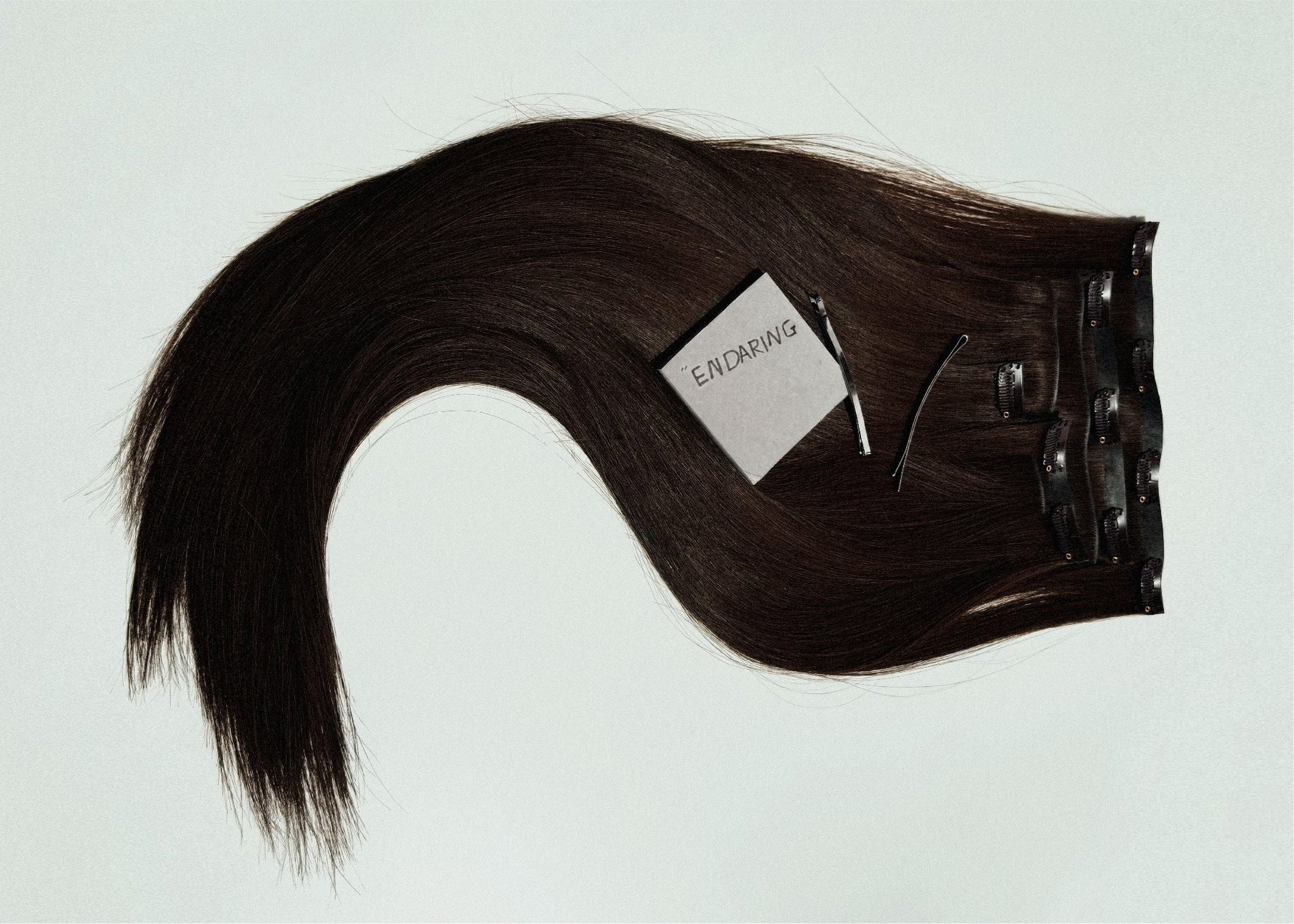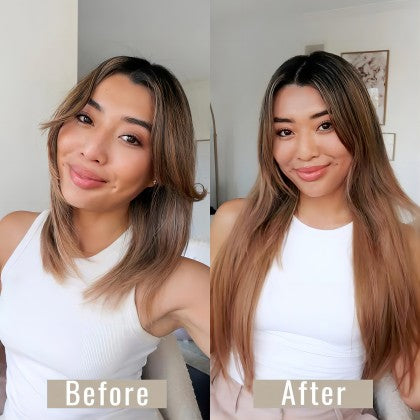Today, we're embarking on an exciting journey to uncover the secrets of hair growth and answer that age-old question: "How long does it take for hair to grow?"
In this blog post, we're delving deep into the science behind hair growth, exploring the fascinating world of follicles and the complex cycle that governs the luscious locks atop our heads. From the first sprout to the final strand, we'll be your guides through the entire hair growth process.
The Hair Growth Cycle: Understanding the Phases-how long does it takes to grow hair?Your hair is continuously growing, resting, and shedding—all at once! Yes, that's the marvelous complexity of the hair growth cycle.
Anagen Phase: The anagen phase, also known as the growth phase, is the time when your hair is actively growing. This phase typically lasts anywhere from two to seven years, depending on individual factors like genetics and overall health. The cells in the hair follicles multiply rapidly during this phase, pushing the hair shaft outwards and adding to the length. Hair grows at an average rate of about half an inch per month during the anagen phase.
Catagen Phase: After the anagen phase, hair transitions to the catagen phase, a short transitional stage that lasts for around two weeks. During this time, hair growth stops, and the hair follicle shrinks. This phase is essentially a "resting" period for the hair follicle before entering the next phase.
Telogen Phase: Finally, the hair enters the telogen phase, commonly known as the shedding phase. This phase lasts for about two to three months, during which the hair follicle remains dormant, and the old hair is pushed out by new hair growing in the anagen phase. It's normal to lose around 50 to 100 hairs per day during the telogen phase.

Factors Influencing Hair Growth Speed
Understanding these factors can help you determine how long does v it take hair to grow and set realistic expectations for your hair growth journey.
Genetics:Your genetics play a significant role in determining your hair growth rate. Some people are genetically predisposed to faster hair growth, while others may have a slower growth rate. Unfortunately, you can't change your genetics, but knowing this factor can help you understand what to expect.
▶Hair lengthens and thickens in a second☜
Age:As we age, our hair growth tends to slow down. Hair growth is generally at its peak during our teens and early twenties. As we enter our thirties and beyond, the growth rate may decrease slightly.

Diet and Nutrition:The old saying "you are what you eat" rings true when it comes to hair growth. Our hair needs a variety of essential nutrients to thrive, and a well-balanced diet is key to supporting healthy hair growth. Proteins are the building blocks of hair, and insufficient protein intake can result in weaker, slower-growing hair. Key vitamins and minerals, such as vitamin A, C, D, E, B-vitamins, zinc, and iron, are also vital for hair health and growth. Including nutrient-rich foods in our diet, such as leafy greens (rich in iron), nuts (packed with biotin), fish (a great source of omega-3 fatty acids), and eggs (abundant in protein and biotin), can provide the nourishment our hair needs to grow at its best.

Hormonal Changes:Hormones play a significant role in regulating various bodily processes, including hair growth. Hormonal fluctuations can occur at different stages of life, such as during puberty, pregnancy, and menopause, and these changes can impact the rate of hair growth. For example, during pregnancy, elevated levels of certain hormones can lead to an increase in the anagen phase, resulting in faster hair growth for some individuals. However, after pregnancy, when hormone levels stabilize, some women may experience temporary hair shedding or thinning. Similarly, hormonal changes during menopause can also affect hair growth patterns. Understanding how hormones can influence hair growth can help us navigate these transitions and adapt our hair care routines accordingly.

Being aware of these factors influencing hair growth speed can help us set realistic expectations and adopt practices that promote optimal hair health and growth. While we can't change our genetics or halt the aging process, we can take charge of our diet, lifestyle, and hair care habits to support our hair's growth potential and enjoy healthy, vibrant tresses throughout our journey of life. So, let's embrace the uniqueness of our hair and nurture it with love and care for the best hair growth experience possible!
Average Hair Growth Rates: Setting Realistic Expectations- how long does it take for hair to grow back?
Let's be real, hair growth isn't a one-size-fits-all affair. Whether you're rocking luscious curls or sleek strands, the average hair growth rates can vary depending on several factors.
Straight Hair:On average, straight hair grows at a rate of about 0.5 inches (1.27 centimeters) per month. This means that over a year, your straight hair may grow approximately six inches.
Wavy Hair:Wavy hair typically grows at a similar rate to straight hair—around 0.5 inches per month. However, the appearance of wavy hair may give the illusion of slower growth due to the bends and curves in the hair shaft.
Curly Hair:Curly hair, being coiled and tightly wound, may seem to grow slower than straight hair. However, the growth rate is still around 0.5 inches per month. The curls can create a spring-like effect that can make it appear as if the hair is not growing as quickly.
The Role of Hair Care: Tips for Promoting Faster Growth
Want to give your hair growth journey a boost? Hair care is the key! We'll unlock the secrets to maintaining a healthy scalp, the foundation for happy hair growth.
Scalp Care:A healthy scalp is crucial for healthy hair growth. Regularly cleanse your scalp to remove dirt and excess sebum, and avoid using harsh shampoos that can strip the scalp of its natural oils. Gentle massages can also stimulate blood circulation, promoting hair growth.
Balanced Nutrition:As we mentioned earlier, a balanced diet plays a significant role in promoting hair growth. Make sure to include foods rich in vitamins A, C, D, E, and B-vitamins, as well as minerals like zinc and iron. These nutrients nourish the hair follicles and support healthy growth.

Avoid Excessive Heat and Styling:Overuse of heat styling tools can damage your hair and slow down growth. Minimize the use of hairdryers, curling irons, and flat irons, and always apply a heat protectant before styling.
Regular Trims:While it may seem counterintuitive, regular trims are essential for maintaining healthy hair and promoting growth. Trimming split ends prevents them from traveling up the hair shaft and causing breakage, ultimately aiding in faster growth.

Busting Hair Growth Myths: What Really Works and What Doesn't
In the quest for longer hair, there's no shortage of myths and misconceptions floating around. We're here to separate the wheat from the chaff, busting hair growth myths left and right. Armed with the truth, you'll be equipped to focus on effective methods that genuinely nurture your hair's growth potential.
Myth: Cutting Hair Makes It Grow Faster:This is one of the most common myths. Cutting your hair does not directly affect the rate at which it grows. Trimming helps to maintain healthy ends and prevent breakage, but it won't speed up the growth process.
Myth: Frequent Brushing Stimulates Growth:While brushing can distribute natural oils and help keep your hair looking healthy, excessive brushing can cause damage and breakage. Brush your hair gently and only as needed to style it.
Myth: Special Hair Products Guarantee Faster Growth:Many products claim to promote rapid hair growth, but the truth is, there's no magic potion for instant hair growth. Focus on a healthy hair care routine and balanced diet for optimal growth.
Myth: Shaving Your Head Makes Hair Grow Thicker: Shaving your head may give the illusion of thicker hair when it starts growing back, but it does not change the actual thickness of your hair or its growth rate.






